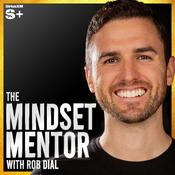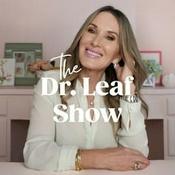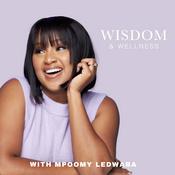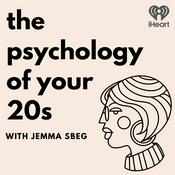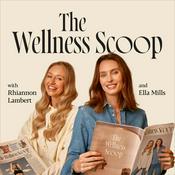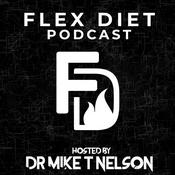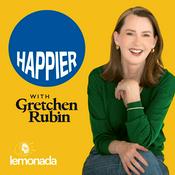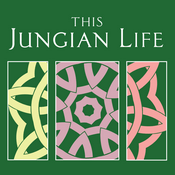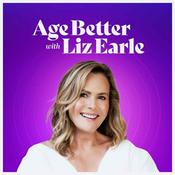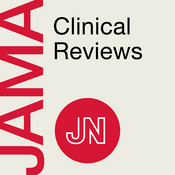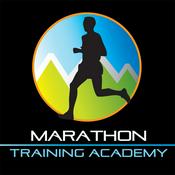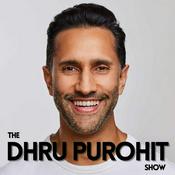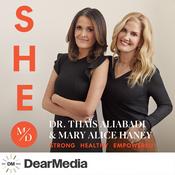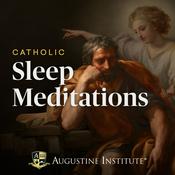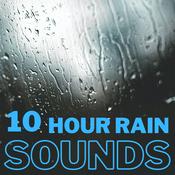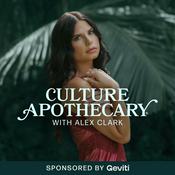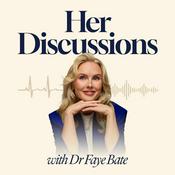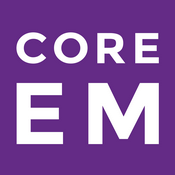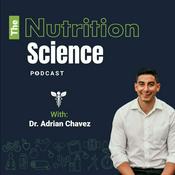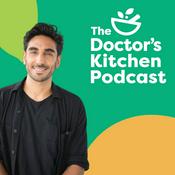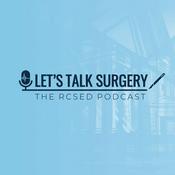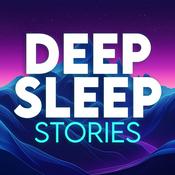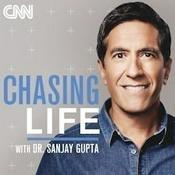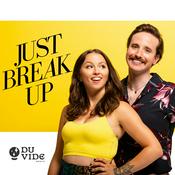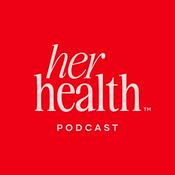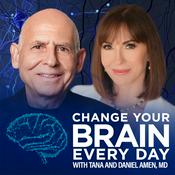65 episodes
- Send us a text
A medicine that quiets food noise, trims 15 to 20 percent of body weight, and even lowers the risk of heart events sounds like a fantasy—until you meet GLP-1 drugs. We dig into what makes semaglutide and tirzepatide so different, how they rewire satiety signals, and why their impact extends beyond the scale to blood sugar, blood pressure, and cardiovascular outcomes. Along the way, we get candid about the trade-offs: GI side effects, lean mass loss, and the reality that stopping often means regaining much of the weight.
To go deeper, we’re joined by Dr. David Rind, chief medical officer at the Institute for Clinical and Economic Review (ICER), to decode how “value” gets measured in health care. Together we explore how these medications can be a strong value for individuals at today’s negotiated prices, yet still strain the entire system when millions qualify. You’ll hear why real-world discontinuation is high, why strength training and adequate protein are non-negotiable, and how benefits like fewer heart attacks, fewer joint surgeries, and improved quality of life factor into the equation.
We also tackle the hard question: how do we pay for a breakthrough at population scale without crowding out everything else? From Netflix-style subscription models and dedicated funding to competitive pricing and rethinking our hyperpalatable food environment, we outline pragmatic paths that could expand access while protecting budgets. If you’ve wondered whether GLP-1s are miracle drugs or money pits, this conversation offers a grounded, evidence-based guide to the science, the economics, and the choices ahead.
Enjoyed the show? Follow, share with a friend, and leave a quick review so more people can find it. Have thoughts or questions we should cover next? Send them our way and join the conversation. - Send us a text
More of us are being seen by nurse practitioners (NPs) and physician associates/assistants (PAs); for routine care outcomes look similar to physician visits, but for complex, new, or worsening problems you should push to see the doctor and ask for clear oversight.
Key topics
Why this is happening: Longer waits and rising demand meet a physician shortfall, so systems lean on NPs/PAs to expand access. New-patient waits average ~31 days, varying widely by city and specialty (AMN
). Fewer people have a usual source of care, pushing visits to urgent care/ER (Milbank Scorecard
).
The scope shift: NP involvement in Medicare outpatient visits rose from 14% in 2013 to ~26% in 2019 (Harvard/Tradeoffs summary). Projections show rapid growth in NP and PA roles through 2030 (ValuePenguin analysis
).
Training differences (at a glance): NPs typically complete a master’s/DNP with ~500–700 supervised clinical hours and, in many states, can practice independently; PAs complete a master’s with ~2,000 supervised hours and practice with physician collaboration; physicians complete medical school plus 3–5+ years of residency (~10,000+ hours) and broad rotations—critical for complex differential diagnosis (AJMC overview
).
Quality of care, by the evidence: For common, protocol-driven issues, outcomes are generally similar. A Cochrane-summarized evidence base finds comparable results for blood pressure control, mortality, and patient satisfaction, with longer counseling time in NP visits (AJMC summary of RCTs
). Patients often feel PAs spend more time with them (JAAPA survey
). Diabetes care quality appears similar across clinicians (PubMed
); NPs tend to deliver more smoking-cessation counseling (AANP brief
).
Where this works well: Routine follow-ups (blood pressure, cholesterol, diabetes), protocol-based care, minor acute concerns (UTI, simple URI), post-op checks when all is going well—especially with clear physician involvement.
When to push for the doctor: New, unclear, or non-resolving problems (e.g., complex headaches, persistent back pain, ongoing fatigue or depression), multiple chronic conditions, many medications, or when a serious alternative diagnosis must be ruled out (e.g., “heartburn” vs. cardiac disease).
Advocate for transparency: Ask in advance who you’ll see, whether your case will be reviewed with a physician, and how escalation works if you’re not improving.
Takeaways
Access will keep driving NP/PA growth; use it to be seen sooner.
For routine care, NPs/PAs are often a solid choice with similar outcomes and more counseling time.
For complexity, insist on physician evaluation or documented oversight.
You have the power to ask questions, confirm the plan, and request escalation when needed.
Links mentioned in this episode
AMN wait-time trends → - Send us a text
Madrone Springs Ranch and Bed and Breakfast Website
Summary:
I share five lessons that shaped an unexpected path—from physician-scientist to entrepreneur, Ironman triathlete, podcaster, and ranch/inn owner—and how you can use the same principles to build a life you didn’t plan but absolutely love.
What you’ll learn:
Why it’s smart to seek counsel—but essential to trust your own judgment.
How pairing medicine and business created a career at the intersection of evidence, incentives, and impact.
A simple way to identify your superpower (and your kryptonite) so you can build the right team around you.
The “big picture → incremental steps” approach that carried me from daily core work to marathons to Ironman.
How to move forward when you don’t have a master plan—just take the next best step.
The power of focusing on strengths and designing work (and life) around what you do best.
Why my podcast exists: translating rigorous evidence into accessible, agenda-free guidance.
Key moments:
Choosing medicine vs. business—and discovering it was never either/or.
Reframing a PhD: deliver peer-reviewed papers, not a door-stop dissertation.
From “don’t look old” to four full Ironmans and 15 70.3s—one step at a time.
Building Madrone Springs Ranch by following curiosity, not a 10-year plan.
Accepting getting "older": prioritize durability and finishing over speed.
The “Chief Beauty Officer” principle—surround yourself with complementary strengths.
Why I launched Live Long & Well: evidence first, no hype, no conflicts.
Takeaways:
Ask for advice, but trust yourself.
Know your superpower—and your kryptonite.
If you have a vision, work backward into small, consistent steps.
If you don’t, take the next best step and let the path reveal itself.
Build your life around what you’re genuinely good at.
Try this this week:
Write down one decision where your gut disagrees with the chorus—what is it telling you?
Make two columns: strengths and weaknesses. Identify one task to delegate or drop.
Pick one small step that moves your long-term vision—or your curiosity—forward.
If this episode helped you, share it with a friend who’s between Point A and Point B. And if you’re new here, follow the show so you don’t miss what’s next. - Send us a text
Summary: I separate cold-season fact from folklore so you know what truly prevents colds, what (slightly) shortens them, what eases symptoms—and what to skip. Save money, feel better, and keep it simple.
What we cover
How common colds are and how long they last (2–3 per year on average; usually 5–7 days; cough can linger).
Prevention audit:
Vitamin C doesn’t prevent colds in the general population (Cochrane), though it helped in physically stressed groups;
handwashing probably helps (Cochrane)
echinacea doesn’t pan out (Cochrane)
garlic didn’t reduce colds but modestly reduced severity in one RCT (trial)
gargling showed a very small signal (trial)
Grandma’s wisdom check:
Short sleep (<6 hours) quadrupled cold risk in a viral-challenge study (study)
cold exposure might matter (foot-chilling RCT: more colds in the chilled group, study
lab data suggest colder noses weaken first-line defenses (mechanism)
Shortening a cold:
Vitamin C doesn’t shorten it when started after symptoms (Cochrane
zinc lozenges can trim 1–2 days if started within 24 hours (≈100 mg/day elemental zinc in trials, meta-analysis
chicken soup has plausible lab effects on white blood cells (study
Symptom relief:
Oral phenylephrine doesn’t work; the FDA voted 16–0 that it’s ineffective (FDA review
Pseudoephedrine (the “real” Sudafed, behind the pharmacy counter) reduces congestion with meaningful effect sizes (evidence
Honey 30 minutes before bed improved cough and sleep in kids (not for <1 year) and is supported by a broader review (RCTsystematic review
Humidifiers didn’t show clear benefit in trials (Cochrane
Voice myth: Whispering actually stresses the vocal cords more for many people—so speak softly instead (study
Flu vs. cold: Tamiflu is only for influenza and must be started within ~48 hours.
Takeaways
To avoid colds: prioritize sleep and handwashing; keeping warm may help.
To shorten a cold: consider zinc (start early). Chicken sou
More Health & Wellness podcasts
Trending Health & Wellness podcasts
About Live Long and Well with Dr. Bobby
Let's explore how you can Live Long and Well with six evidence based pillars: exercise, good sleep, proper nutrition, mind-body activities, exposure to heat/cold, and social relationships. I am a physician scientist, Ironman Triathlete, and have a passion for helping others achieve their best self.
Podcast websiteListen to Live Long and Well with Dr. Bobby, The Mindset Mentor and many other podcasts from around the world with the radio.net app
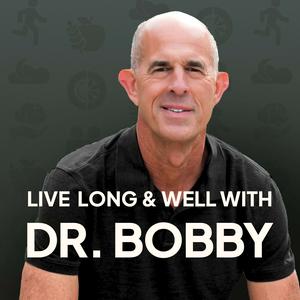
Get the free radio.net app
- Stations and podcasts to bookmark
- Stream via Wi-Fi or Bluetooth
- Supports Carplay & Android Auto
- Many other app features
Get the free radio.net app
- Stations and podcasts to bookmark
- Stream via Wi-Fi or Bluetooth
- Supports Carplay & Android Auto
- Many other app features


Live Long and Well with Dr. Bobby
Scan code,
download the app,
start listening.
download the app,
start listening.


